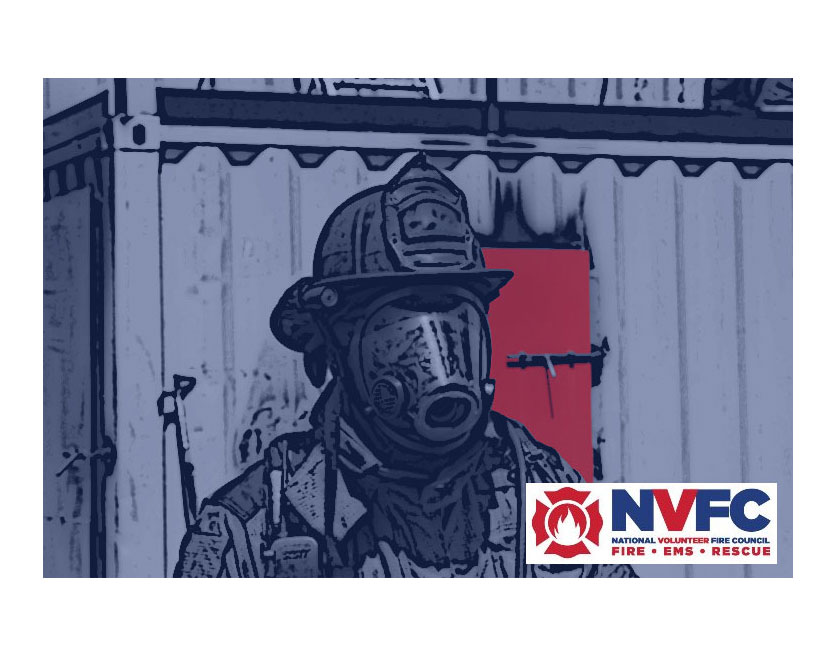
By Brian F. McQueen
As I write this article, my mind keeps reverting back to a 28-year old volunteer firefighter friend of mine who traveled to New York City to undergo testing and develop a treatment plan for his recent diagnosis of a rare lymphoma. This volunteer firefighter is a lieutenant with a department in our county, and he recently proposed to the love of his life and is planning a wedding this coming August. It just isn’t fair that they have to be burdened with this new path they are taking, but those of us who have been diagnosed with cancer know quite well that the stigma will always be there.
I applaud the fire service over the past five years for creating a culture of change when it pertains to firefighter occupational cancer. More in depth articles are being written, SOGs and best practices are being developed, and the message that we need to protect ourselves and our families is getting relayed in all forms, on both the volunteer and career side of the ladder. However, what are we doing to address the social and emotional needs of firefighters who’ve been diagnosed with the Big “C”? Do we even think about those aspects? Do we understand the pain and suffering that they will endure through treatments and for years after? Do we understand the impact that the diagnosis will have on the family? Now that the focus is on prevention, what are we doing to help those diagnosed with occupational cancer? Sure, I have been deemed cancer free for five years now, but the stigma of the diagnosis, the treatments, and the psychological after effects still remain with me…and will always be there.
Firefighter Cancer Prevention: Using the Tools Provided to Us
IAFC, NVFC Releases Cancer Prevention Best Practices Report
Firefighters and Cancer: Publications Highlight Firefighters’ Chemical Exposures
Firefighters and the Cancer Beast
For those of us that live it EVERYDAY, it NEVER goes away. I feel my neck many times each day to make sure cancer isn’t there and hasn’t come back. It’s not a habit…it’s a must! None of us want to relive those days of intensive radiation or chemo treatments. We appreciate the extra chance from God to make a difference each and every day. There is never a week that goes by that I don’t read about another person who lost their life from occupational cancer, a cancer that they inherited from their work at Ground Zero or the job they are doing protecting their communities.
It’s been reported that patients dealing with cancer may have symptoms of post-traumatic stress (PTS) at any point from diagnosis through treatment, after treatment is complete, or during possible recurrence of the cancer. The National Cancer Institute says that PTS symptoms develop by conditioning, which occurs when certain triggers become linked with an upsetting event. Neutral triggers (such as smells, sounds, and sights) that occurred at the same time as upsetting triggers (such as chemotherapy or painful treatments) later cause anxiety, stress, and fear even when they occur alone, after the trauma has ended. Other symptoms of PTS include nightmares and flashbacks.
Some aspects of the cancer journey that may lead to PTS include tests and treatments, the diagnosis, pain endured from the cancer, test results, long hospital stays, being away from your family for a length of time, and the fear that cancer will return. It is quite normal for a person with cancer, or a cancer survivor, to have feelings of anxiety, such as worry, fear, and dread. However, if these feelings do not go away over time, continue to get worse, or affect daily life, they could be a sign of PTS.
I can tell you for a fact that my life, and my family’s life, changed forever with my occupational cancer diagnosis. In speaking with other firefighters who are cancer survivors, I often hear similar messages of PTS symptoms that impact their lives: The nightmares and flashbacks, or the avoidance of things and places that bring back memories of their treatments, strong feelings of guilt or shame that they let their loved ones down, trouble sleeping at night, and the continued anger of: “Why was I diagnosed with cancer? How can the job I was doing protecting the residents of the community be killing me?”
In closing, let me reassure each of you that the continued development of the Lavender Ribbon Report’s best practices for occupational cancer risk reduction will never go away. Cancers that occur as a result of exposures in the workplace are preventable if exposures to known or suspected carcinogens can be reduced, and it’s everyone’s job in our profession to make sure it gets done. But we also need to continue to educate our firefighters about the post-traumatic stress that is related to an occupational cancer diagnosis. Cancer impacts everyone in the fire service, and we can’t lose focus of this issue. Cancer has no limitations, and as demonstrated in this article, whether you are 28 years old or 57 an occupational cancer diagnosis will have a lifetime effect on you and those you love.
Brian F. McQueen is past chief of the Whitesboro (NY) Fire Department and past director of the Firemen’s Association of the State of New York (FASNY). He serves as a New York director, executive committee member, and cancer subcommittee chair for the National Volunteer Fire Council. Brian was awarded the Golden Trumpet from FASNY for his work on the Volunteer Firefighters Cancer Law, and he is a board and founding member of the Believe 271 Foundation Inc.

